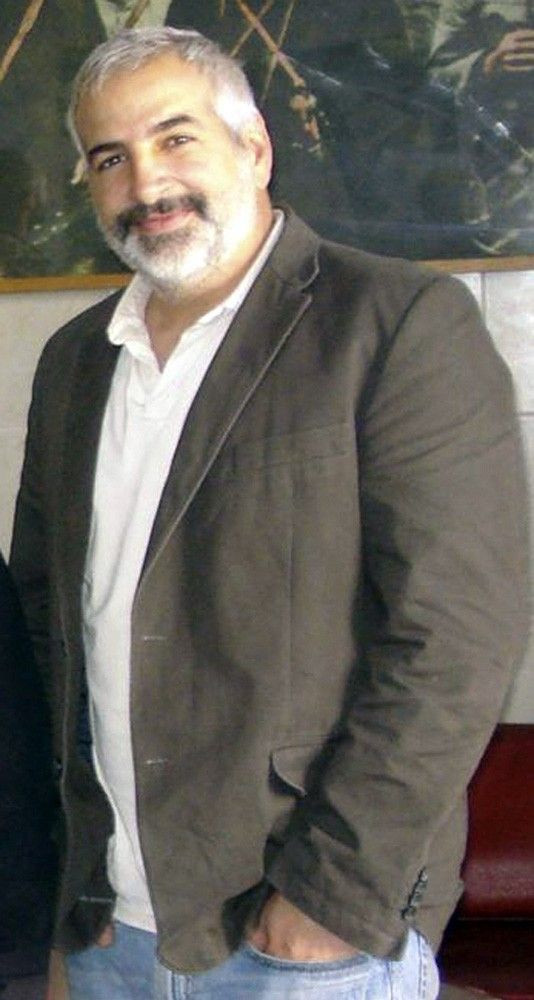Anthony Shadid Dies: New York Times Correspondent's Best Articles

The New York Times lost one of its leading Middle East correspondents, Anthony Shadid, Tuesday when he suffered a fatal asthma attack while on assignment in Syria.
Shadid's reporting on Iraq, Egypt, Libya and other Middle Eastern countries rife with conflict were invaluable contributions to world news. The 43-year-old correspondent often risked his life venturing into places seldom reported on to tell stories that badly needed to be told.
Regarded as one of the most respected Middle Eastern correspondents by his peers and readers, Shadid spoke fluent Arabic and had a nuanced understanding of the region. Over his two-decade career, his articles were often featured on the front pages of where he worked: The Boston Globe, The Associated Press, The Washington Post and The New York Times. He is also the author of three books.
Shadid, also praised for his kind and courageous character, is survived by his wife and two children. Below is a collection of some of his best and most acclaimed work.
Reporting in Israel and the West Bank
As a correspondent for the Boston Globe, Shadid reported in Israel and the West Bank during the bloody intifada of 2002. While working in Ramallah, he was shot in the shoulder on Easter Sunday during a street battle between Israeli soldiers and Palestinians.
Even though Anthony was badly wounded, he didn't want to come out of Ramallah unless he was allowed to take a Palestinian colleague with him through the Israeli checkpoint. It took hours to negotiate that passage, and Anthony's life was at risk, but he wouldn't come out on his own, James F. Smith a former Globe foreign editor, told the paper.It was an example of the kind of courage and concern for others that Anthony showed again and again, throughout his career.
He won the George Polk Award in 2002 for his courageous work. Below are a just a couple of his notable articles (note: subscription to the Boston Globe is required for access).
Arafat: A Man of Calculated Risks, Mar. 31 2002
Israeli Forces Arrest hundreds in Ramallah; Move Comes as Suicide Bomber Hits Tel Aviv, Mar. 31, 2002
Coverage of Iraq War
Shadid's coverage of the U.S. invasion of Iraq in 2003 for The Washington Post won him a Pulitzer Prize in 2004. The ten articles that were nominated not only describe war but personalized the conflict by depicting the daily lives of Iraqis and connecting the reader to their suffering. His articles also earned him The Michael Kelly Award, The Overseas Press Club's Hal Boyle Award, and The American Society of Newspaper Editors' Award for deadline reporting.
'We're in a Dark, Dark Tunnel,' March 24, 2003
In a Moment, Lives Get Blown Apart, March 27, 2003
Enduring Life, and Now War, March 28, 2003
A Boy Who Was 'Like a Flower,' March 31, 2003
Hussein's Baghdad Falls, April 10, 2003
Shiite Clerics Face a Time of Opportunity and Risks, April 20, 2003
For an Iraqi Family, 'No Other Choice,' Aug. 1, 2003
Attackers United By Piety in Plot To Strike Troops, Sep. 21, 2003
In Revival of Najaf, Lesson for A New Iraq, Dec. 10 2003
In New Iraq, Sunnis Fear a Grim Future, Dec. 22, 2003
2007 Lebanese Conflict
While working for The Washington Post, Shadid was a finalist for the Pulitzer Prize in 2007. His coverage of the civil war between Islamist militant organization, Fatah al-Islam, and the Lebanese Armed Forces combined insightful analysis with vivid storytelling. Among the dozens of articles he wrote for the Post, below are a couple:
From Hopeful to Helpless At a Protest in Lebanon, Nov. 23, 2007
Inside Hezbollah, Big Miscalculations, Oct. 8, 2006
Coverage of Iraq, Post-Invasion
Shadid won the Pulitzer Prize once again for his coverage of post-invasion, U.S.-occupied Iraq. While many reporters had left their Baghdad bureaus and the media paid less and less attention to what was happening the country, Shadid focused on an Iraqi society that struggled to figure out what was next.
In Iraq, the Day After, Jan. 2, 2009
New Paths to Power Emerge in Iraq, Jan. 13, 2009
'No One Values the Victims Anymore', March 12, 2009
A Journey Into the Iraq of Recollection, April 1, 2009
A Quite but Undeniable Cultural Legacy, May 31, 2009
In the City of Cement, July 12, 2009
Worries About Kurdish-Arab Conflict Move to Fore in Iraq, July 27, 2009
In Anbar, U.S.-Allied Tribal Chiefs Feel Deep Sense of Abandonment, Oct. 3, 2009
'People woke up, and they were gone', Dec. 4, 2009
In Thuluyah, reverberations of a U.S. raid, Dec. 24, 2009
Libya and the Fall of Moammar Gadhafi
While reporting on the Arab Spring in Libya and NATO mission last year, Shadid and three other New York Times journalists--Tyler Hicks, Stephen Farrell and Lynsey Addario--were arrested by forces loyal to Moammar Gadhafi and held for six days. All four were physically abused and their driver, Mohammad Shaglouf, died. Shadid's last article for The New York Times was a behind-the-scenes look at a post-revolutionary Libya, where rival militias replaced the Gadhafi's government.
4 Times Journalists Held Captive in Libya Faced Days of Brutality, Mar. 22, 2011
Libya Struggles to Curb Militias as Chaos Grows, Feb. 8, 2012
© Copyright IBTimes 2024. All rights reserved.





















